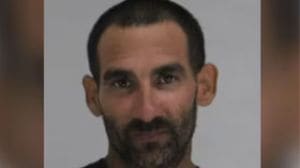The quality of mercy
Should Dhananjoy Chatterjee be hanged? The courts found that he had raped and murdered a minor and gave him the death penalty. His wife has ...

Should Dhananjoy Chatterjee be hanged? The courts found that he had raped and murdered a minor and gave him the death penalty. His wife has invoked the president’s power to pardon. Media reports indicate that the state and central governments have opposed the prayer.
On March 5 1990, Dhananjoy was convicted for raping and murdering Hetal Parikh in her apartment in Calcutta. She was 14 years old and was found to have many injuries on her person. It was a heinous crime. Society needs to be protected from such criminals. Children like Hetal need to be safe. The public outrage is clearly justified. Yet, some facts stare us in the face.
Dhananjoy has undergone 14 years of incarceration after his conviction. He has spent his youth in a cell meant for condemned prisoners. He has lived between feeble fantasies of coming out alive and the dreadful fear of death. Each day of these fourteen years, he has waited to be executed.
It is true that Dhananjoy had committed a heinous crime. And that in such a case, the punishment cannot be formal. It is also true the law punishes the guilty so as to protect the innocent. The victim’s family has suffered a serious trauma. Their hurt needs to be healed. Yet, the issue is — will it be fair to award the death sentence after he has suffered life imprisonment?
While the courts deal with law, the executive exercises the ‘power to pardon.’ The constitution confers the power of clemency on the President of India and the governors of states. The relevant provisions are contained in Articles 72 and 161 of the Constitution. It is a ‘‘high prerogative vested by the Constitution in the highest functionaries of the Union and the States.’’ A Constitution Bench of the Supreme Court in Kehar Singh versus Union of India observed that the ‘‘power under Article 72 is of the widest amplitude.’’ Thus, it cannot be cabined or cribbed by any considerations other than the merits of the case.
This rule has been tested. In the case of the murder of Chopra children, the penalty of death awarded to Billa and Ranga was upheld by the Supreme Court. The petition for pardon was dismissed by the president. Then a petition under Article 32 was moved before the court. It was contended that the power under Article 72 carried a duty to act fairly and reasonably. While dismissing the petition, the Court observed that ‘‘the exercise of power under Article 72 depends upon the facts and circumstances of each particular case. The necessity or the justification for exercising that power has therefore to be judged from case to case…’’
The high prerogative to grant pardon is of the widest amplitude. The facts of the case have to be kept in view. A ‘‘prolonged trial or execution of death sentence beyond all reasonable period’’ can ‘‘be a ground for commuting the death sentence in a given case.’’
Let us hate sin, not the sinner. Compassion and mercy are the ideals of a civilised society.
Photos


- 01
- 02
- 03
- 04
- 05





























